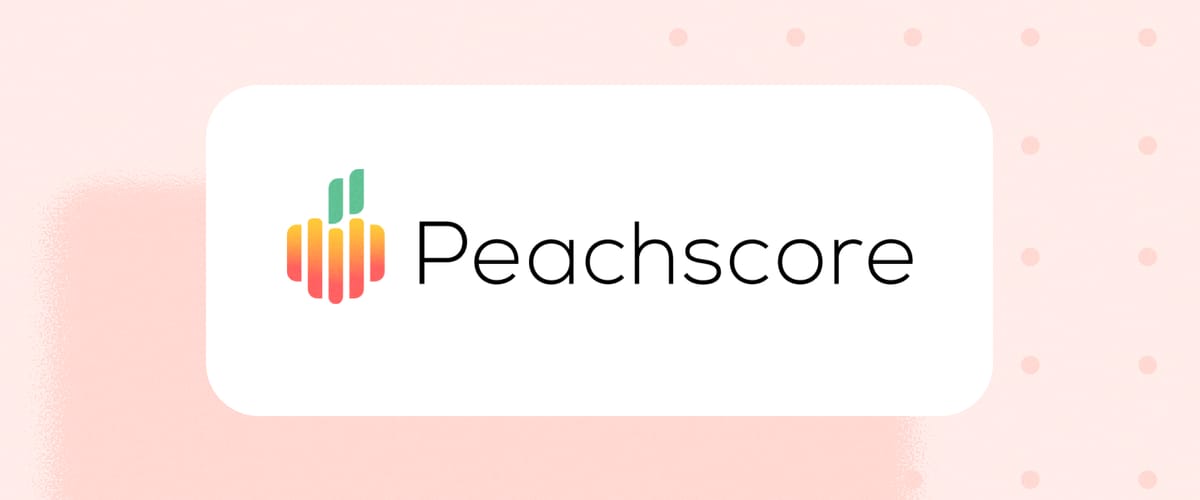For decades, the startup community has raced towards bigger and bigger. Everyone wanted to become the next unicorn. And why stop there – next up are the decacorn ($10 billion), centicorn ($100 billion), and superunicorn ($1 trillion). But is bigger always better? Or stronger? “We don’t think so,” say more and more people who choose not to participate in the race.
What’s up with the new self-sufficiency trend in the startup world? Who are the ‘camel/bee’ startups? Can you even call yourself a startup if you don’t want to grow as fast as (in)humanly possible? Or are you just the silent quitter of the startup world? Keep reading to find out.
Financial freedom: self-sufficiency of bootstrapped startups
After the 2022-2023 venture capital crash, countless startups are facing down-rounds, valuation crunches, and agitated investors. It’s a better time than ever to be bootstrapping. As we know, bootstrapping founders use their personal resources to finance their startups, retaining complete control over their businesses. Even though the times are rough for everyone, bootstrapping startups are not shackled to the expectations and fears of outside investors.
Bootstrapping can both be a deliberate strategy or happen due to a lack of alternatives. Almost all founders bootstrap their companies in the beginning, but most seek outside investments sooner or later. First and foremost because bootstrapping is expensive, but also to grow the business as fast as possible. Only a minority of founders choose (and can afford) bootstrapping as a long-term strategy.
The most notable examples of bootstrapped startups include MailChimp and Basecamp. The email marketing leader MailChimp is one of the most successful bootstrapped companies in the world. Also named one of the most innovative companies in the world, the key to its success has been the focus on customer service, innovation, and constant iteration. Basecamp, a project management and collaboration platform helps businesses and individuals to get more work done. The key to their success has been a simple and easy-to-use interface, excellent customer support, and a relentless focus on quality.
Mental freedom: ‘camel/bee’ startups are redefining success
Lately, we’ve seen the rise of the self-proclaimed ‘camel/bee’ startups. This new mindset takes a step back from chasing unicorns and the all-prevailing race to growth at any cost. Unicorns are rare desirable creatures, but like with many other fairy creatures, chasing them might not be the best idea. Or good for your sanity.
After decades of the ‘make it or break it’ culture, overworking, toxic productivity, and other hidden downsides of the unicorn culture, many people feel it’s time to redefine success in the startup world. Maybe, a resilient, adaptable camel or worker bee is a much better animal to convey.
The word ‘camel’ symbolizes self-sufficiency and overcoming hard times, while the term ‘bee’ emphasizes teamwork and collective intelligence. Those characteristics are valuable now more than ever. This new school of startups values resilience, adaptability, and people over everything else.
‘Camel/bees’ choose deliberate and moderate growth instead of the out-of-control rapid scaling. They choose focus, direction, and impact over achieving valuation milestones.
Is ‘camel-bee’ synonymous with bootstrapping? Not necessarily. One is a funding model, other is a wider mindset – a ‘bee/camel’ startup can bootstrap, but doesn’t have to. Also, a ‘bee/camel’ startup could become a unicorn, but it’s not a primary goal in itself. We believe this could represent a significant shift in the startup mindset and brings along a few benefits for the founders.
5. reasons to stay small(er) as a startup
- You retain control over your business – investor money comes with strings attached. Instead of building your own vision, you’re reporting to people who might have a different idea of where your business should be going. If you value creative and visionary freedom, staying small and/or bootstrapping leaves you in control of the business. It also leaves you with full or more right to the profits. With fundraising, the founder’s equity can get so diluted in the end that they have all the responsibility of a billion-dollar startup but a fraction of the profits. You could be financially much better off owning and running a smaller company.
- You can keep focus or change directions – the more investors you have on board, the more you’re catering to their short-term interests rather than the long-term interests of your company or your mission. Seeking maximum growth to satisfy investors or to succeed in the next funding round makes companies overhire, dilute their efforts, and leave them scattered all over the place. Smaller companies can avoid outside distractions and keep their focus laser sharp.
- Your startup is more resilient and adaptable – the bigger you get, the harder it is to steer the ship or change directions altogether. When you’re a big yet unprofitable company, covering your overhead depends on securing a steady flow of investments. As we’ve recently seen, the moment when the economic tides turn, these companies are in deep trouble. Staying smaller and leaner gives you and your company the sustainability and flexibility to overcome challenging times. You’re nimble enough to steer and pivot without much trouble.
- You build something that really works – staying small means embracing the lean methodology. The lean approach helps you get to a viable business model as fast as possible, through experimentation, iteration, and validated learning. We all know that most unicorns are not profitable, yet keep adding new directions to pursue with no real breaking-even point in sight. Intentionally small startups can’t afford that and need to make a profit and positive cash flow from early on. That’s a great place to scale from further on.
- You can foster the culture you want – the unicorn culture has led to quite a few toxic workplace practices. Even if your company has started off with a different culture, it’s challenging to keep it up in the midst of rapid growth and recruitment. By intentionally staying small, you can foster the culture and values you truly want, handpick the best people to match the team and cultivate an overall more enjoyable and fruitful environment for everyone.
3 main challenges of startups deliberately staying small
Strategically staying small in a world of chasing unicorns definitely has its price. The main challenges revolve around recognition and finding and retaining people.
Recruiting is a lot more challenging – hiring for rapid growth and hiring for staying small and lean are entirely different. As a deliberately small startup with a team of 10, you want to hand-pick just the right person, preferably a top-of-the-class expert. If you run a team of hundreds and need to hire dozens of people at once, you can just go with the “good enough” and hope for the best to shine through. Hiring small needs a lot more focus and attention to detail, exactly like all other day-to-day operations of a lean business.
It’s harder to be taken seriously – another challenge that is both related to hiring but also finding new customers is the question of reputation. In a culture that predominantly chases growth, people assume you’re small because you’re weak. Also, bigger companies stay in the picture more often as they’re constantly hiring, more people are working there, etc. As a deliberately small business, you need to work double hard to build a brand and clearly convey that you’re small because you’re focused.
Employees are under a different type of stress – in a smaller team, every employee has a bigger personal responsibility. Most people are one-man teams – on one hand, it means immense creative liberty, on the other, it’s quite a burden. Also, employee turnover is a much bigger risk for the company when there’s no one else to share the know-how.
Dealum’s story – supporting the ecosystem from the ground up
Did you know that Dealum is the leading software in its segment? Pretty impressive for a team of 12 people. Furthermore, we have 20’000 investors and 65’000 companies on board – and counting.
You probably didn’t know that Dealum is both deliberately bootstrapping and deliberately staying small.
Dealum’s founders Rain Kivisik and Rein Lemberpuu both come from a startup and angel investment background. They know what change they want to see in the startup ecosystem and founded Dealum to support that change from the ground up – by improving the transparency and efficiency of the pre-seed ecosystem. They want to empower angel investors to collaborate, make better deals faster, and focus on relationships and networks, not get stuck in the technicalities.
With enough money in their pockets from previous ventures, Rein and Rain didn’t want to use that money to just make more money. They sincerely believe that the first step of pre-seed funding should be angel investors. Unlike big institutional investors, angel investors are truly invested in the success of the companies – they’re emotionally tied to their values and mission.
Angel investors often support ventures that might not make so much sense on paper while big institutional investors try to push the supposedly innovative startup world into the “box” of the old economy. Institutional money tends to evaluate ideas based on the past, not the future, which limits creativity and innovation. With everyone looking for or building the next “Bolt” or “Wise”, we’re missing ideas that could be just as groundbreaking but in an entirely different way.
Angels see the future and believe in the future. And dreamers are the ones who change the world. Going off the beaten path can sometimes lead to failure, but sometimes take us closer to the future someone dared to dream of.
Fostering a solid angel investor community is crucial for the functioning and evolution of the startup ecosystem. Angel investing is a synergy between money, mission, and ideas.
Value and impact before valuation
The synergy between money and ideas is also at the core of deliberately staying small. Seeing money as a means, not a goal helps startups keep focus, foster the culture they really value, and maximize the impact they want to see. For shareholders, profit may come but the impact comes first.
It’s hard to steer the steam engine once it’s at full speed. In the make-it-or-break-it world, there’s also more breaking than we’d like to admit – from founders and their dreams to people working in these companies.
Rushing from one funding round to another makes companies lose focus, overhire, expand in all directions, and ultimately lose control of their business and their purpose. Recent capital crunch layoffs and founders’ mental health epidemic are all symptoms of the same problem, to name a few.
One might ask whether you can call yourself a startup if you don’t want to grow as fast as possible. That’s because chasing growth (and only growth) has become such a force majeure in the industry that we’re failing to see how that is failing us all. The startup industry can reimagine so many things – we’re sure it can reimagine the rules we play by.
Join our team of innovators and become part of Dealum!
Dealum is the leading deal flow management platform for early-stage investor groups
View open positions







